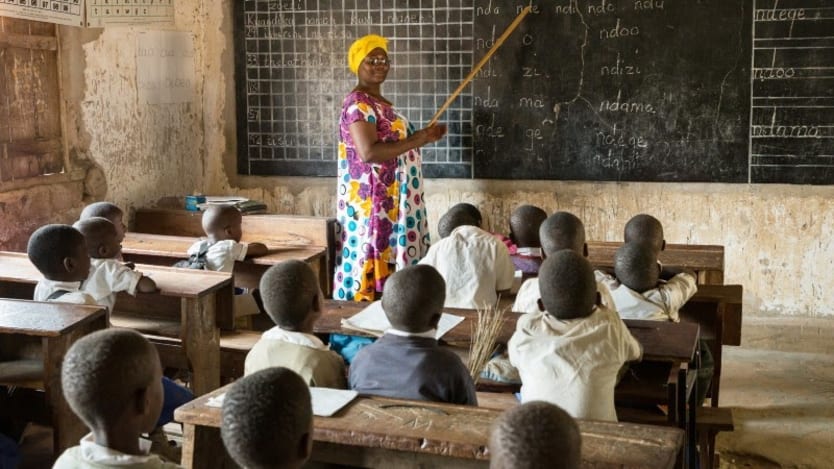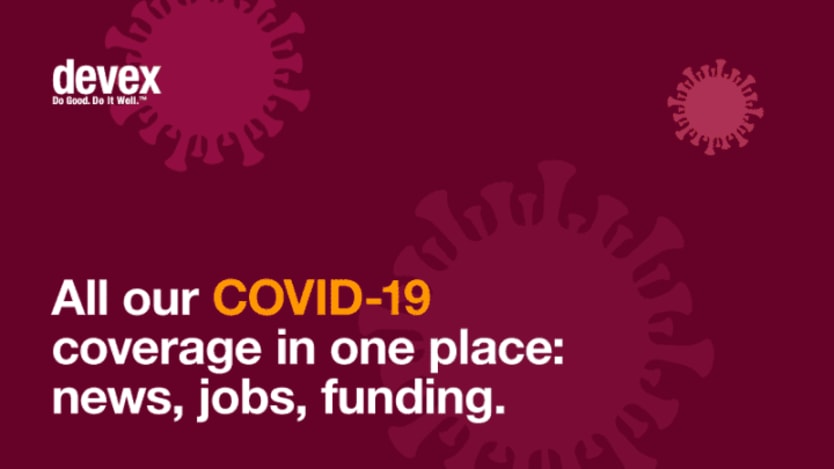
In the beginning of the year, there were 258 million children and adolescents out of school around the world. Now, there are nearly 1.6 billion learners — over 90% of the world’s students — confined to their homes because of the new coronavirus spreading across the globe. This pandemic is adding to the endless continuum of barriers confronting students in their quest for a quality education and a better life.
Schools have typically been under-resourced and underfunded when it comes to the uptake of technology, despite the fast-paced digital world around them. Regardless of where we live, school tends to conjure up an eerily consistent image of teachers in front of chalkboards or whiteboards and classrooms filled with students sitting at desks with paper and pencils. This unchanged approach to education has been exposed as we frantically try to transition students to online learning amid a growing pandemic.
COVID-19 — a timeline of the coronavirus outbreak
Follow the latest developments on the new coronavirus that causes COVID-19.
Long before COVID-19 appeared on the scene, education was stuck inside the confines of classrooms, with students shut out of learning due to poverty, distance, violence, or the need to work to support their families. But learning can and should be happening everywhere and anywhere. Learning does not have to be bound within a brick-and-mortar building, and it can take many forms. There is a new reality that we must embrace, and if we are wise, we will use it to introduce much-needed innovation into our education system.
In fact, I believe there are opportunities to reverse-engineer solutions developed for out-of-school adolescents in rural areas that could apply to students in quarantine.
One example is a hybrid learning model combining technology and hands-on curriculum that is balanced between self- and teacher-led learning. Digitally enabled learning and working in small peer groups are built on a premise of allowing flexible schedules and individual learning styles. We have learned that student autonomy and pacing are conducive to learning and accelerate at an individual’s chosen tempo. In addition, hands-on, relevant, project-based, and applied curricula can deepen engagement when built on tacit knowledge and skills. It can be a good thing if we embrace it.
Teachers are also adapting to online lesson planning while keeping their students engaged and learning. In poor rural areas, severe teacher shortages are widespread, but these shortcomings are managed by specializing the role of the teacher and integrating community mentors and peers. Using technology and digital platforms, we can help teachers be more effective, giving them more time to support students when they need it. Finally, formerly marginalized students can leverage digitally enabled learning to catch up at their own pace and reintegrate into formal or vocational education and employment.
Educators will identify many of these strategies as “flipped classroom,” “teaching at the right level,” project-based learning, or personalized learning. What we call these interventions matters less than our ability to acknowledge that education and our approach to it need not be monolithic. We do not seek novel solutions for the sake of “something new,” but rather to address student needs by developing sustainable, comprehensive solutions that lead to learning.
The current coronavirus-imposed school closures have revealed deep gaps in our overall approach to education. We cannot allow this or any other challenge to stand in the way of making sure all children have equitable access to learning. While the volatility of our world is forcing us to change our lives to stop the spread of COVID-19, the question is: Will we use this opportunity to adopt new technology, innovate, and upgrade our education system to address students’ long-standing needs?
Visit our dedicated COVID-19 page for news, job opportunities, and funding insights.









